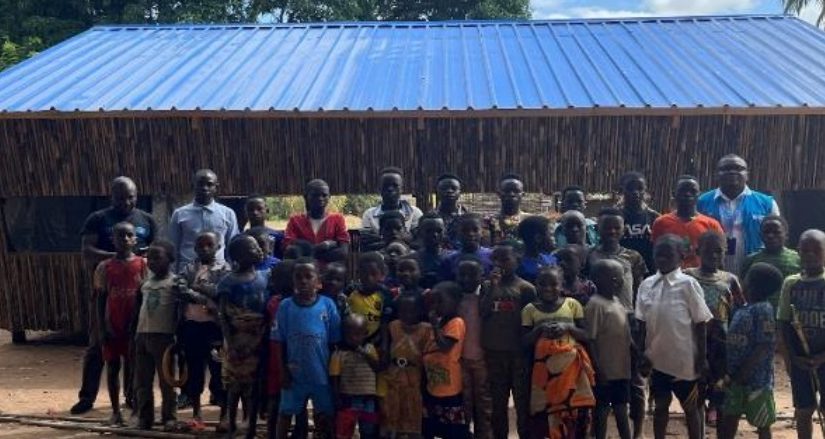Mozambique: No risk of mpox becoming a pandemic
UNICEF Mozambique Humanitarian Situation Report No. 8: 31 August 2022

File photo: UNICEF
Highlights
- 8.5 million children under 5 received poliovirus vaccinations during the fourth round of the nationwide campaign. UNICEF delivered emergency health and nutrition supplies to districts in emergency-affected areas of the north to respond to the needs of approximately 30,000 people.
- Three multi-purpose centres which will provide a space for activities for adolescents have been completed in Cabo Delgado
Five temporary learning spaces will provide support education of 500 children, including 300 girls, returning to Quissanga District.
- Over 59,000 families received cash transfers
- Frontline works from 85 UNICEF partners and 16 civil society organizations received PSEA training in Nampula, Zambezia and Sofala provinces.
Situation Overview & Humanitarian Needs
The volatile security situation in Cabo Delgado continued to drive displacement and populational movements. Between 27 July and 30 August 2022, the International Organization for Migration counted a total of 29,387 persons moving within the province, most of which were related to conflict—either new displacements, relocations of internally displaced persons (IDPs), or spontaneous returns. Of those on the move, approximately 57 per cent were children, 24 per cent were women, with 625 elderly, 110 pregnant women, and 36 people with disabilities. Among the registered IDP arrivals, most individuals originated from Ancuabe, highlighting the impact of the attacks by non-state armed groups (NSAG) in the district, particularly in June and July. At the end of August, renewed attacks and displacements were reported in Ancuabe District, before moving south into Chiure District and then to Erati and Memba Districts of Nampula Province in early September. Insecurity also continues to impact humanitarian access. As per the latest OCHA Access Snapshot for Cabo Delgado, seven districts were classified as entirely or partially hard-to-reach, with approximately 302,000 IDPs estimated to be in hard-to-reach locations across the province.
The Famine Early Warning System Network (FEWSNET) in August indicated that food insecurity remains a challenge3, with IPC Phase 3—or Crisis level—outcomes in areas affected by shocks. The affected areas include drought-affected areas of the South, areas affected by floods and storms in Nampula, and conflict-affected areas in Cabo Delgado. Food insecurity is projected to increase, with a higher number of households facing Crisis level outcomes between the lean seasons (October and November) in the North and in Central/South Mozambique. Adding to the crisis, the annual inflation rate reached its highest level since August 2017, increasing from 10.8 per cent in June to 11.8 per cent in July. Price increases were particularly noticeable for transportation, food and non-alcoholic beverages, as well as housing and utilities, thus reducing the purchasing power of families, especially for poor households.
Since the first case of wild poliovirus was detected earlier this year in Mozambique, four additional cases have been confirmed, all in Tete Province. Additional cases of vaccine-derived poliovirus have also been detected. As such, polio campaigns have been stepped up nationally, and Mozambique is now preparing for the fifth round of nationwide polio vaccinations which will take place between 27-30 October targeting 8.5 million children below the age of five with the bivalent oral polio vaccine. During round four, records show that 8.5 million children were vaccinated with 84 per cent of the districts passing the lot quality assurance sampling processes.
- You may read/ download the full report HERE.













Leave a Reply
Be the First to Comment!
You must be logged in to post a comment.
You must be logged in to post a comment.